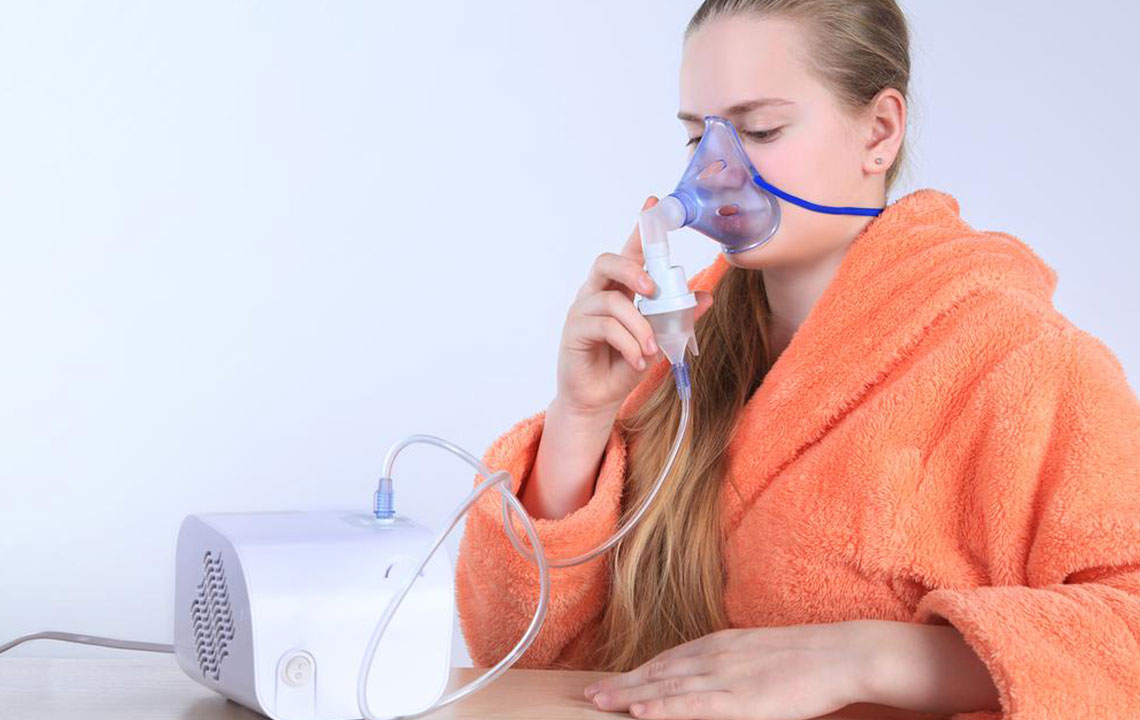Chronic Bronchitis – Symptoms, Causes, and Treatments
Bronchitis can be defined as an irritation or inflammation of the airways, also known as bronchial tubes, in the lungs. These airways are the tubes through which the air passes. When these airways get inflamed, thick mucus forms in them. The mucus covers up the airways thus making it hard for the air to get into the lungs.

Chronic means that the problem or condition lasts a long time ranging from a few days to several months. Chronic bronchitis is bronchitis that usually lasts more than 3 months and often occurs with emphysema. The combination of these disease causes chronic obstructive pulmonary disease (COPD).
Symptoms of chronic bronchitis
The most common symptoms of acute bronchitis:
- Sore throat
- Fever
- constant coughing accompanied by yellow or green mucus
- Chest congestion
- Shortness of breath
- Wheezing
- Chills
- Body aches
Causes of chronic bronchitis
Viruses are often blamed for causing chronic bronchitis. Viruses attack the coating of the bronchial tree and cause inflammation. The same viruses that are responsible for causing colds can also cause acute bronchitis. Chronic bronchitis is contagious, i.e., the virus can be caught from breathing it in or through contact. Once the body starts fighting bronchitis causing viruses, swelling, and inflammation occur. The body needs time to kill these viruses and heal the damage caused to the bronchial tubes.
Cigarette smoking is also said to be a major cause of chronic bronchitis. During smoking, tobacco smoke is inhaled into the lungs, this smoke causes irritation in the airways, and they start producing mucus. Regular smokers often develop acute bronchitis. Moreover, people who have been exposed to chemical fumes for long duration of time tend to suffer from this problem
Treatment for chronic bronchitis
The home remedies mentioned below are effective options as a treatment for chronic bronchitis. A majority of the cases of acute bronchitis can be easily treated at home.
- Drink plenty of fluids
- Avoid caffeinated drinks and alcohol
- It is always advised to sleep well and get enough rest
- Take over-the-counter pain relievers to ease the pain, reduce inflammation, and lower temperature
- Acetaminophen (Tylenol) helps ease pain and fever
- Use cough medicine for children falling in the age group of 6 or more
- Increase the humidity level in your home; one can also use a humidifier
- Never hold in a cough that carries mucus; it is better to get rid of the infectious mucous and clear off the bronchial tree from viruses
- Quit smoking
Doctors often prescribe medicines as a treatment for chronic bronchitis caused by bacterial infections. People with acute bronchitis need medications that treat asthma. It might be needed if the person is wheezing. These medications help in opening up the bronchial tubes and also in clearing out mucus and are normally taken with an inhaler as it sprays the medicine right into the bronchial tree.
A bronchodilator is a medicine prescribed by the doctors to treat chronic bronchitis. This medicine helps in dilating or opening the lung’s airways and improves breathing.
Steroids are also given to reduce the inflammatory reaction. Prednisone, methylprednisolone, etc. are known to decrease the bronchial swelling and secretions which results in better airflow as there is little or airway obstruction. Examples include fluticasone (Flovent), budesonide (Pulmicort), mometasone (Asmanex), and beclomethasone (Qvar). Combination therapy with both steroids and bronchodilators is often advised to patients suffering from acute bronchitis. These combination treatments include fluticasone/salmeterol (Advair), mometasone/formoterol (Dulera), and budesonide/formoterol (Symbicort).
Exercising on a regular basis help strengthen the muscles that help in breathing. It is advised to exercise at least thrice in a week to get rid of mucous causing infectious bacteria. One can start by exercising slowly and then gradually increase the intensity. A great workout not only helps shed the extra pounds but is also extremely beneficial for the internal organs.
Pulmonary rehabilitation, an exercise program, often given under the guidance of a trained respiratory therapist helps improve breathing thereby acting as a treatment for chronic bronchitis. There is another breathing method, which is known as pursed-lip breathing which lays emphasis on deep breathing and then exhaling slowly through your mouth while holding the lips as if you’re going to whistle. Pursed-lip breathing has been seen to slow down fast breathing that is associated with chronic bronchitis.
Supplemental oxygen therapy is an integral part of treatment for bronchitis. This treatment is a combination of activity and sleeping. Patients with severe or acute bronchitis are advised to keep a small finger oximeter for checking blood oxygen levels when resting and during activity.
Chronic bronchitis increases the chances of lung infections, and thus it is advised to get a flu shot every year. Moreover, it is advised to get a pneumococcal vaccination every 5–6 years to protect against pneumonia.











